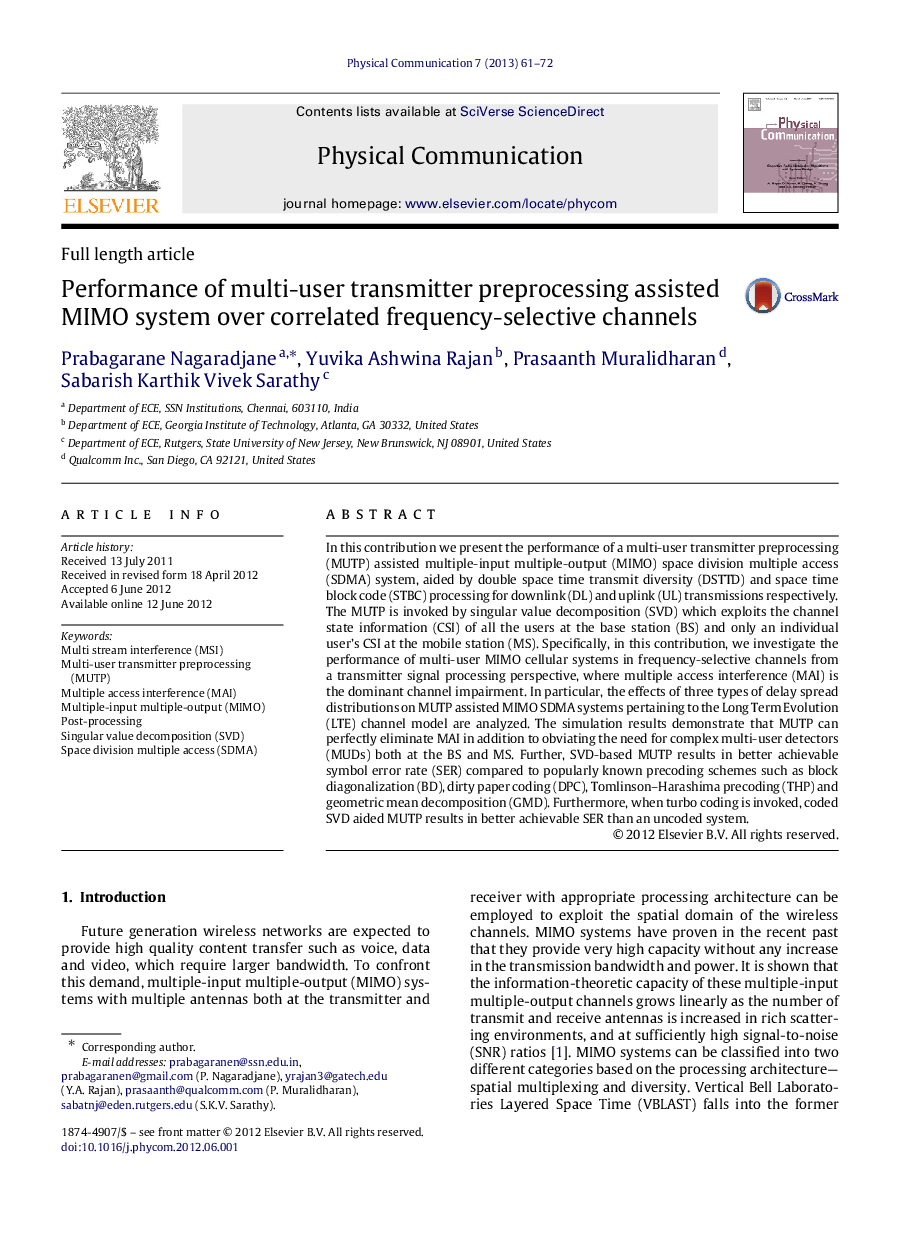| Article ID | Journal | Published Year | Pages | File Type |
|---|---|---|---|---|
| 465128 | Physical Communication | 2013 | 12 Pages |
In this contribution we present the performance of a multi-user transmitter preprocessing (MUTP) assisted multiple-input multiple-output (MIMO) space division multiple access (SDMA) system, aided by double space time transmit diversity (DSTTD) and space time block code (STBC) processing for downlink (DL) and uplink (UL) transmissions respectively. The MUTP is invoked by singular value decomposition (SVD) which exploits the channel state information (CSI) of all the users at the base station (BS) and only an individual user’s CSI at the mobile station (MS). Specifically, in this contribution, we investigate the performance of multi-user MIMO cellular systems in frequency-selective channels from a transmitter signal processing perspective, where multiple access interference (MAI) is the dominant channel impairment. In particular, the effects of three types of delay spread distributions on MUTP assisted MIMO SDMA systems pertaining to the Long Term Evolution (LTE) channel model are analyzed. The simulation results demonstrate that MUTP can perfectly eliminate MAI in addition to obviating the need for complex multi-user detectors (MUDs) both at the BS and MS. Further, SVD-based MUTP results in better achievable symbol error rate (SER) compared to popularly known precoding schemes such as block diagonalization (BD), dirty paper coding (DPC), Tomlinson–Harashima precoding (THP) and geometric mean decomposition (GMD). Furthermore, when turbo coding is invoked, coded SVD aided MUTP results in better achievable SER than an uncoded system.
